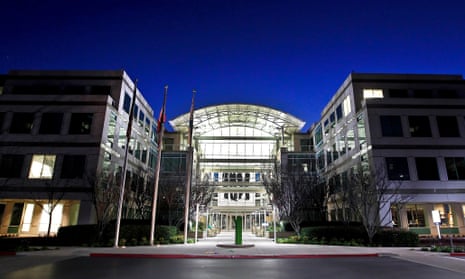Four Silicon Valley companies including Apple and Google have agreed to a new settlement that would resolve a class action lawsuit by tech workers who accused the firms of conspiring to avoid recruiting each other’s employees.
Plaintiffs accused Apple, Google, Intel and Adobe Systems in the 2011 lawsuit of limiting job mobility and, as a result, keeping a lid on salaries.
The case has been closely watched because of the possibility of big damages being awarded and for the opportunity to peek into the world of some of America’s elite tech firms.
US District Judge Lucy Koh in San Jose, California, last year rejected a $324.5m (£214m) settlement of the lawsuit as too low after one of the plaintiffs objected.
That worker will support the new agreement, his attorney Daniel Girard said, which could be a joint payment of $415m, the New York Times reported citing a person close to the negotiations.
Representatives for Apple, Intel and Adobe declined to comment. A Google spokesman could not be reached, nor could an attorney for the plaintiffs.
The case was based largely on emails in which Apple co-founder Steve Jobs, former Google CEO Eric Schmidt and some of their rivals detailed plans to avoid poaching each other’s prized engineers.
In rejecting the $324.5m deal, Koh repeatedly referred to a related 2013 settlement involving Disney and Intuit.
Apple and Google workers got proportionally less than Disney workers, Koh wrote, even though plaintiff lawyers had “much more leverage” against Apple and Google.
To match the earlier settlement, the deal with Apple, Google, Intel and Adobe “would need to total at least $380m,” Koh wrote.
In the short court filing on Tuesday, the companies said plaintiffs would file a detailed explanation of the new deal “imminently.” Koh will then probably decide whether to accept or reject it.
The case is In Re: High-Tech Employee Antitrust Litigation, U.S. District Court, Northern District of California 11-cv-2509.
